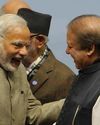The Doklam standoff implies that the future of Asia will not be an unipolar one built around China. It will be a multipolar future.

ON 28 AUGUST, disengagement started at the Doklam plateau on the Sikkim border where Indian and Chinese forces have been in a standoff since 18 June. According to a statement issued by the Ministry of External Affairs, “expeditious disengagement of border personnel at the face-off site has been agreed to and is ongoing”. The Chinese Foreign Ministry, for its part, suggested that “Indian forces have already withdrawn to the Indian side of the border” and that “Chinese forces will continue to patrol in Doklam region”. It has also said that its forces “will remain in the region” and continue to exercise their “sovereignty over the region”. That was China trying to put a spin on the outcome as border patrolling by China was never really an issue.
The standoff had begun when Chinese troops started constructing a concrete road in Doklam in Bhutanese territory. The Indian troops promptly halted the construction work, forming a human chain, calling it a change in the “status quo” with serious security implications for India as the Doklam Plateau overlooks the strategic Chumbi Valley.
Over the last more than two months Beijing continued to harangue and wage its psychological warfare, sometimes by reminding India of 1962, and sometimes by suggesting that countermeasures would be unavoidable if the Narendra Modi government continued to ignore Chinese warnings. China also provoked India by asking what New Delhi would do if it “enters” the Kalapani region in Uttarakhand, or Kashmir. This is the first time that the Kashmir issue has been raked up by China at the official level.
This story is from the September 2017 edition of Swarajya Mag.
Start your 7-day Magzter GOLD free trial to access thousands of curated premium stories, and 9,000+ magazines and newspapers.
Already a subscriber ? Sign In
This story is from the September 2017 edition of Swarajya Mag.
Start your 7-day Magzter GOLD free trial to access thousands of curated premium stories, and 9,000+ magazines and newspapers.
Already a subscriber? Sign In

Refuging Progess
There is a well-orchestrated global conspiracy to deny scientific and technological developments from the West to Third World countries.

The Monk Of Science
Vivekananda believed that Religion should be subjected to scientific methods of investigation. The third and concluding part of our series on the Swami and his views on science.
The Next Step
Indian technical manpower can be trained for high-value-added emerging services in the era of mass commoditisation of hardware.
The Threat Of Autarchy
The force of globalisation is an irreversible reality, and it is countries like India and China that will nurture it going forward.

Neanderthals: The Womb Of Caves
Recent discoveries indicate that Neanderthals may have had a rich inner life, including symbolic thought. Indeed, they may have been the progenitors of human religions.

Getting India's World Right
Incremental concessions will get India nowhere with Pakistan and China. What we need is a classically conservative foreign policy, based on realism.

The Hesitant Orbit
In order to march boldly ahead into the deep space, New Delhi must work towards building a station, boost its techno-economic planning and use the Indian Space Research Organisation smartly.

Nudges And Narratives
The debate surrounding Sanjay Leela Bhansali’s Padmavati brings India a complex network of portraits within a cultural world-system.

The Spell Of Specialisation
THE INDIAN ADMINISTRATIVE SERVICE NEEDS AN URGENT REJIG. THE KEY TO SPEED AND EFFICIENCY LIES IN PUTTING AN END TO A GENERALIST APPROACH AND IN GOING FOR A NEW SERVICE.
The Great Gamble
With demonetisation, the prime minister has taken a huge risk— both economic and political. He must succeed, because this move could transform both our economy and our society.